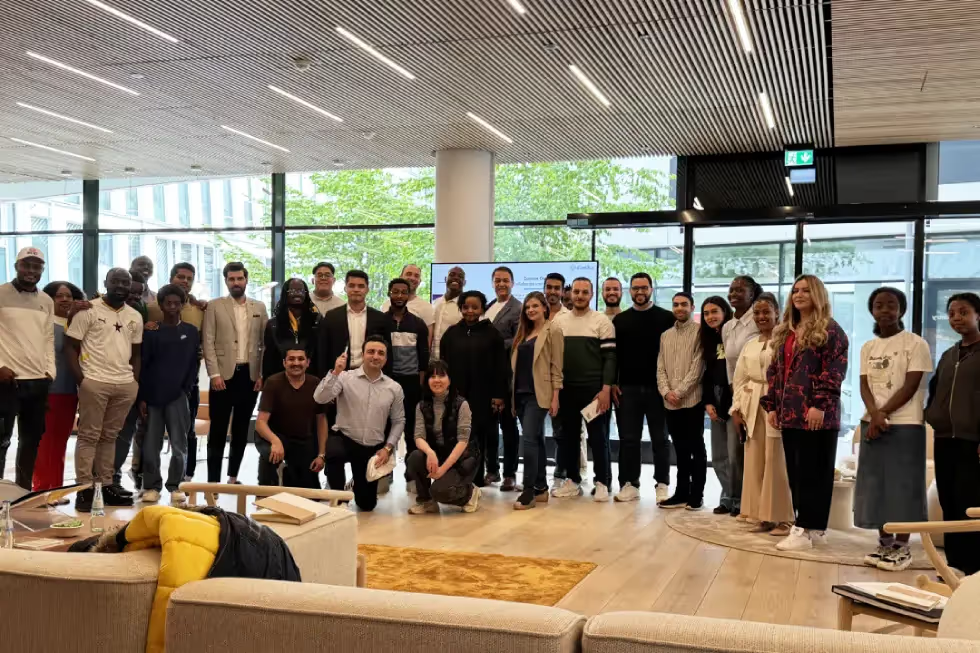As Germany’s population shrinks due to the retirement of the older generation, the labour market and economy face immense pressure. Nonetheless, the country’s excellent education system, abundant career opportunities, and cosmopolitan society have positioned it as the top non-English speaking study destination for international students. This expanding group has significant potential to rejuvenate Germany’s workforce.
This edition of the Fintiba Insights Paper examines how to better support international students through their integration journey into German society as well as in bridging the skills gap.
The study results in full are available for download here.
About the Survey
Between July and September 2022 we asked our customers about their integration situation in Germany. In total 9,106 international students and expats from 126 countries contributed to delivering insights about the integration of internationals in Germany.
Key Findings
84% of the internationals felt that they lived in an international and diverse environment.
57% of students intend to stay in Germany after graduation, while 37% were undecided.
32% of the surveyed internationals felt well integrated in Germany – suggesting there is substantial room for improvement.
Which opportunities for integration do internationals have in Germany?
The survey also found that students who participated in extracurricular activities (41%) felt better integrated. Extracurricular activities provide students with opportunities to learn new skills, widen their network, and make new friends. However, the majority (59%) are missing out on crucial chances to explore, network, and integrate more fully.
Do you take part in any extracurricular activities?
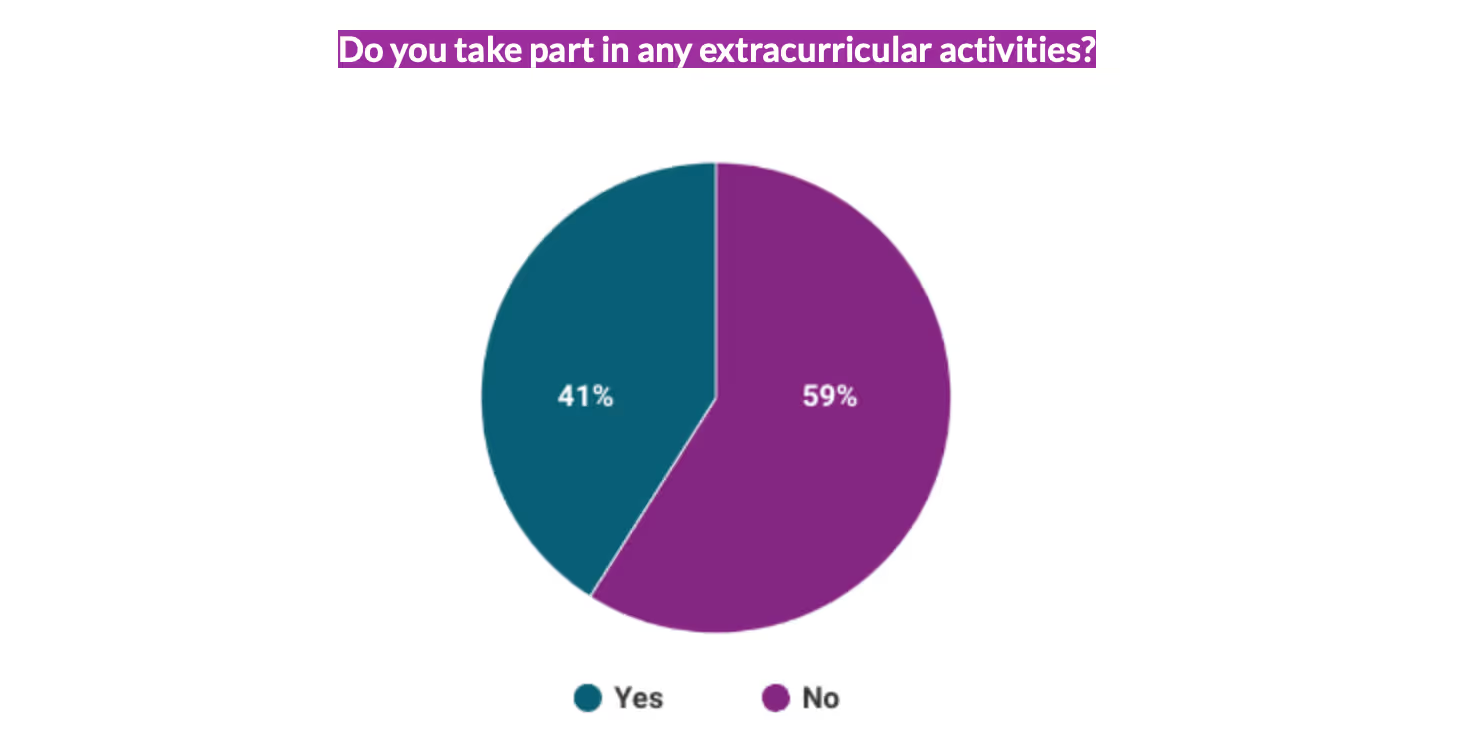
Fellow students, neighbours, and colleagues were among the top five integration enablers. These results show that these individuals play a crucial role in facilitating successful integration and indicate that internationals are more inclined to reciprocate by being engaged community members when society is open and inclusive.
Which of the following have made it easier for you to integrate?
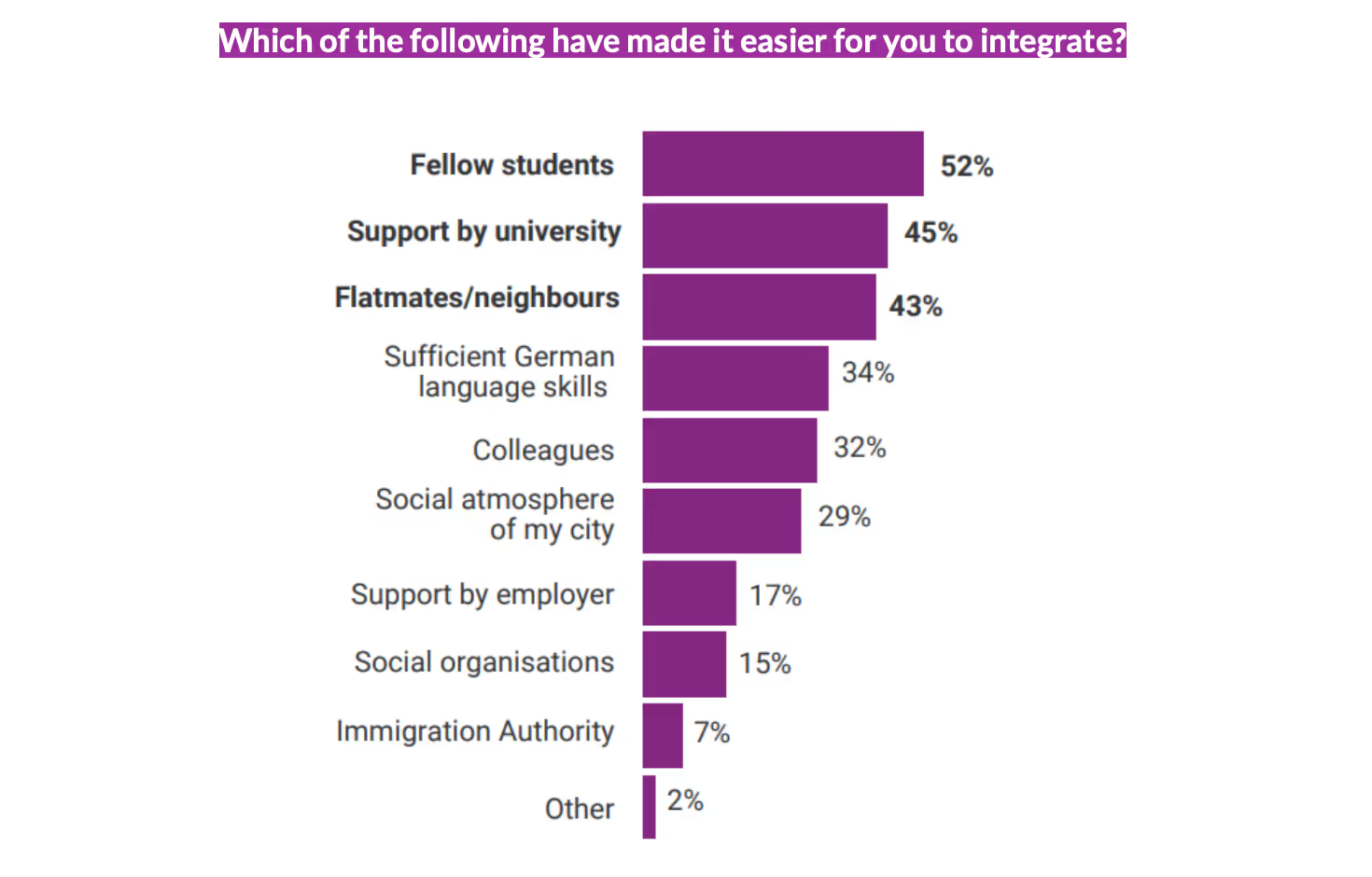
An additional key pillar of successful integration is having a good command of the German language. The survey results showed that the greater their proficiency in German, the more integrated a respondent felt.
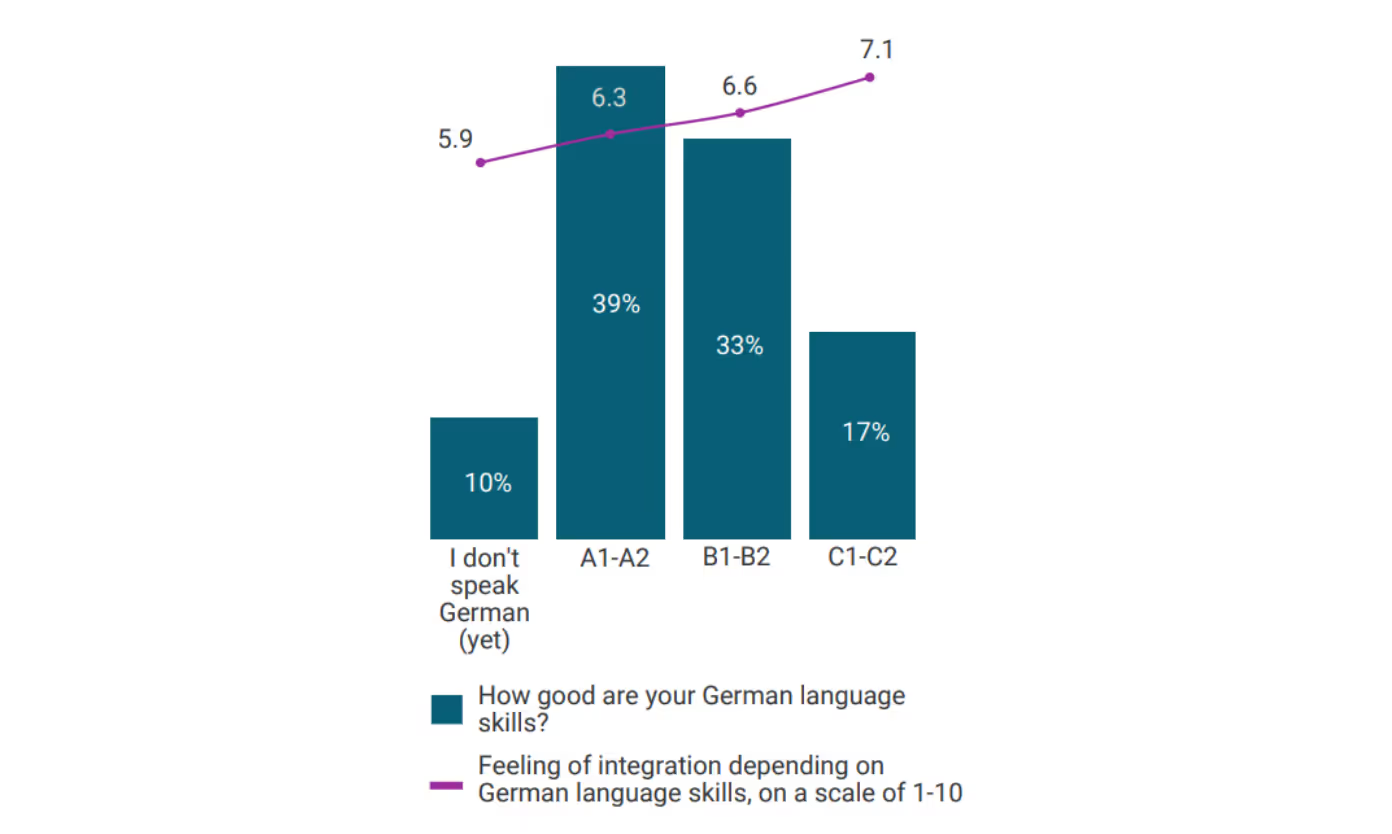
Which challenges do internationals typically face while integrating into Germany?
While learning German is a crucial component of successful integration, nearly 65% of the respondents faced language and communication barriers during their integration journey.
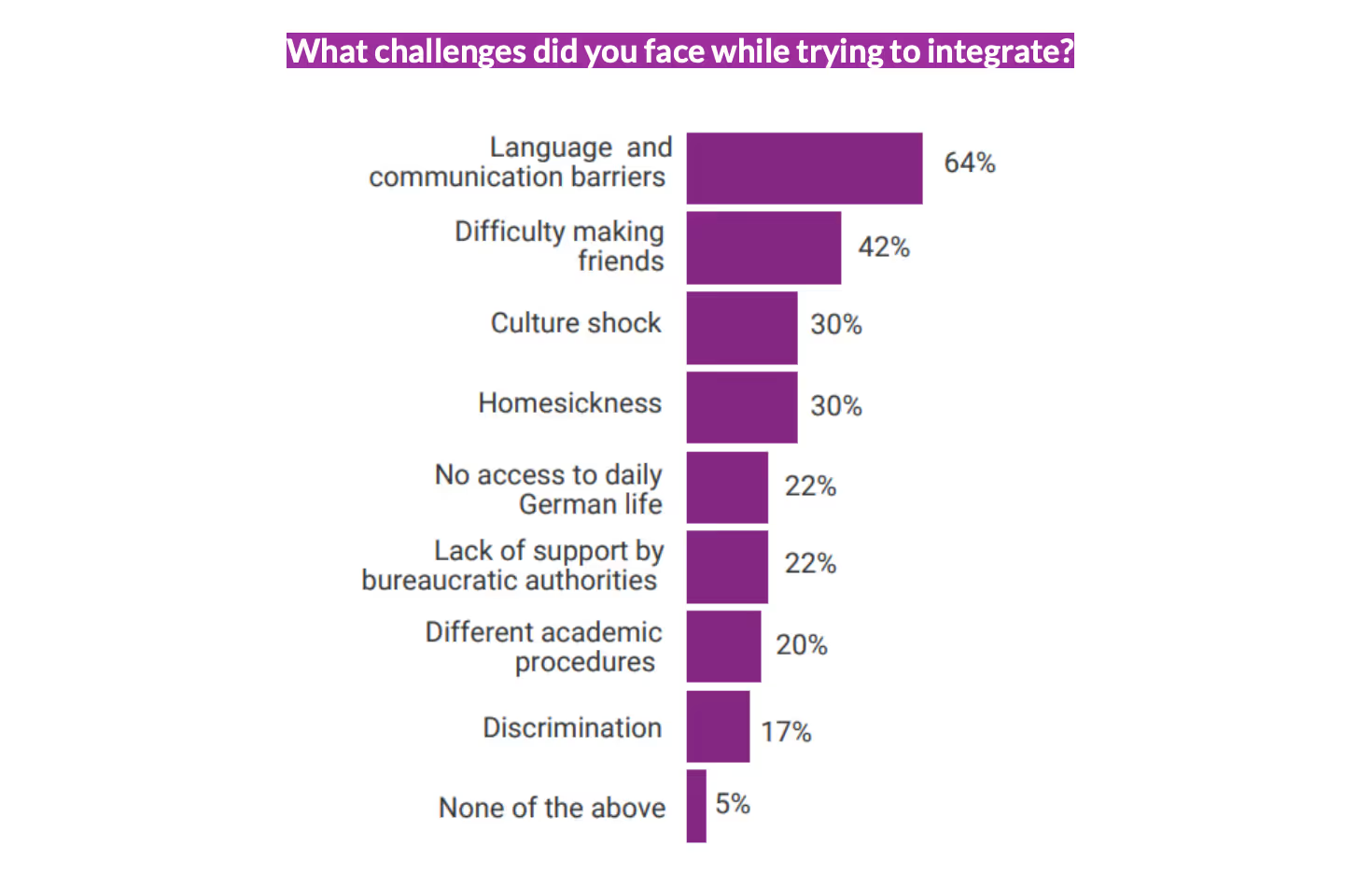
What challenges did you face while trying to integrate?
Approximately 20% of the respondents indicated that they encountered difficulties with the immigration authorities, which made integration harder for them. Additionally, 17% of international students reported a lack of support from their universities as an obstacle.
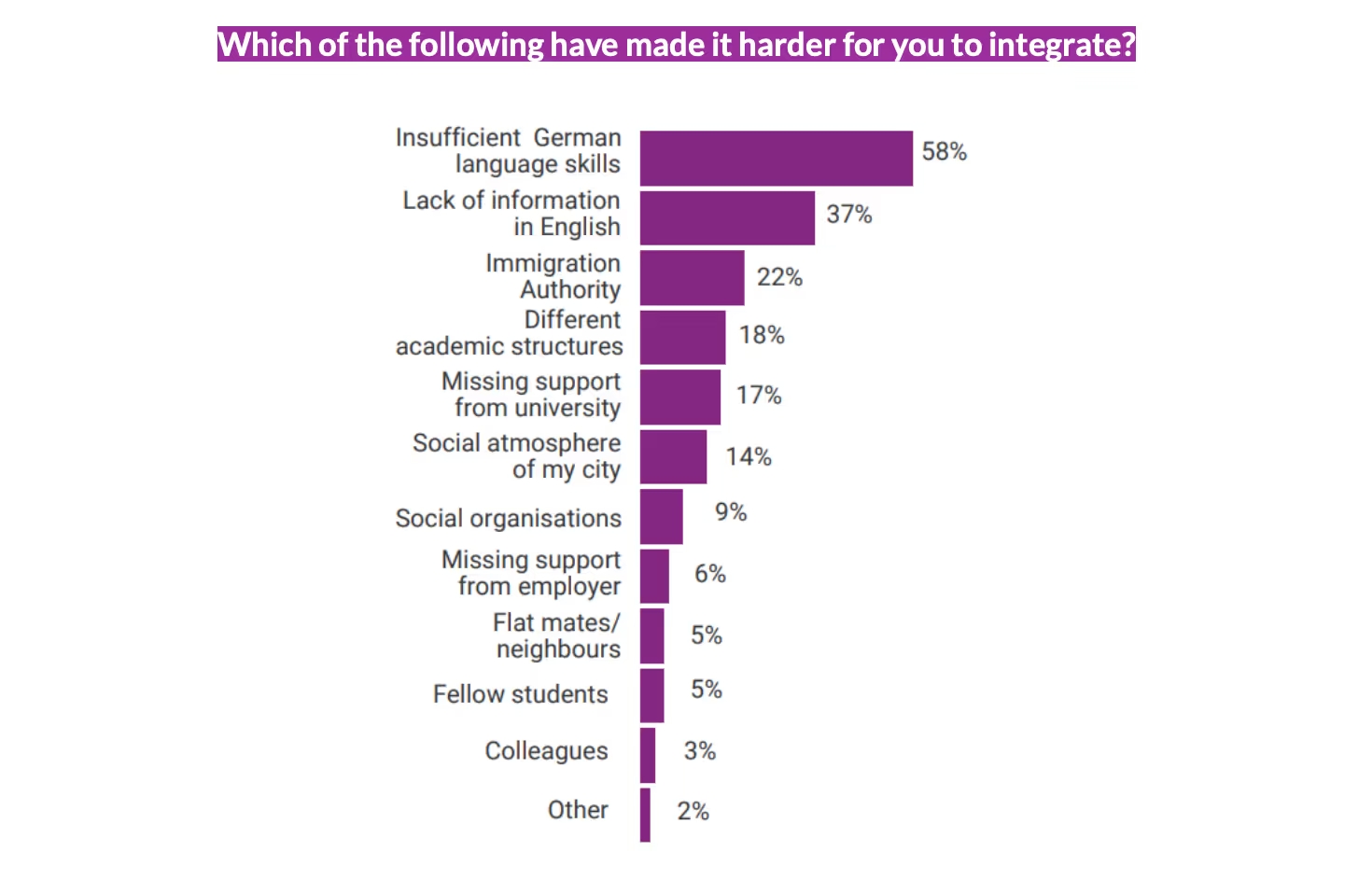
What does successful integration mean for international students in Germany?
International students who felt more integrated were more inclined to stay in Germany upon finishing their studies. This presents a great opportunity for the German labour market to attract qualified professionals.
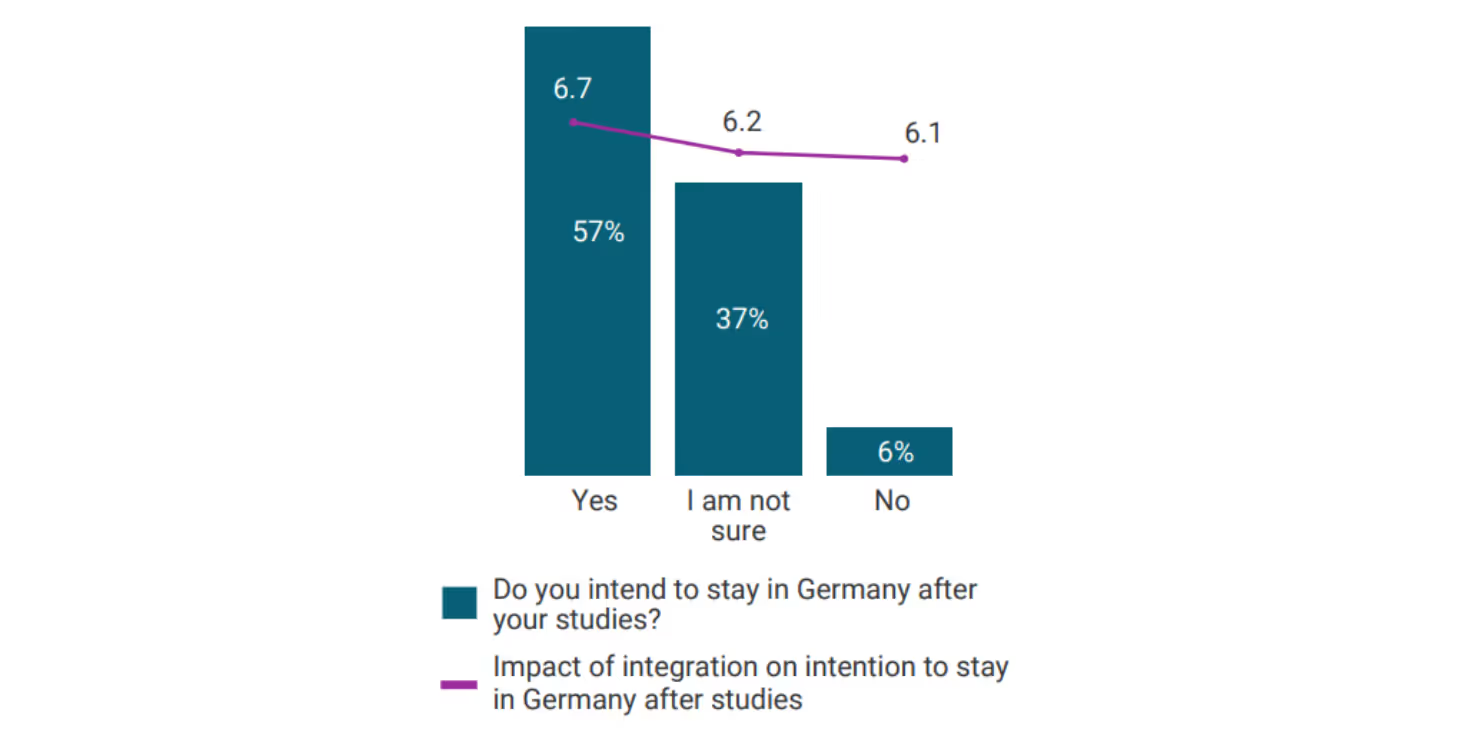
The survey results suggest that respondents who felt more integrated were also better prepared to start a career and enjoyed a smoother job search. Almost 80% of respondents indicated that they felt “very prepared” to “somewhat prepared” to begin working in Germany, showing a positive outlook for the labour market.
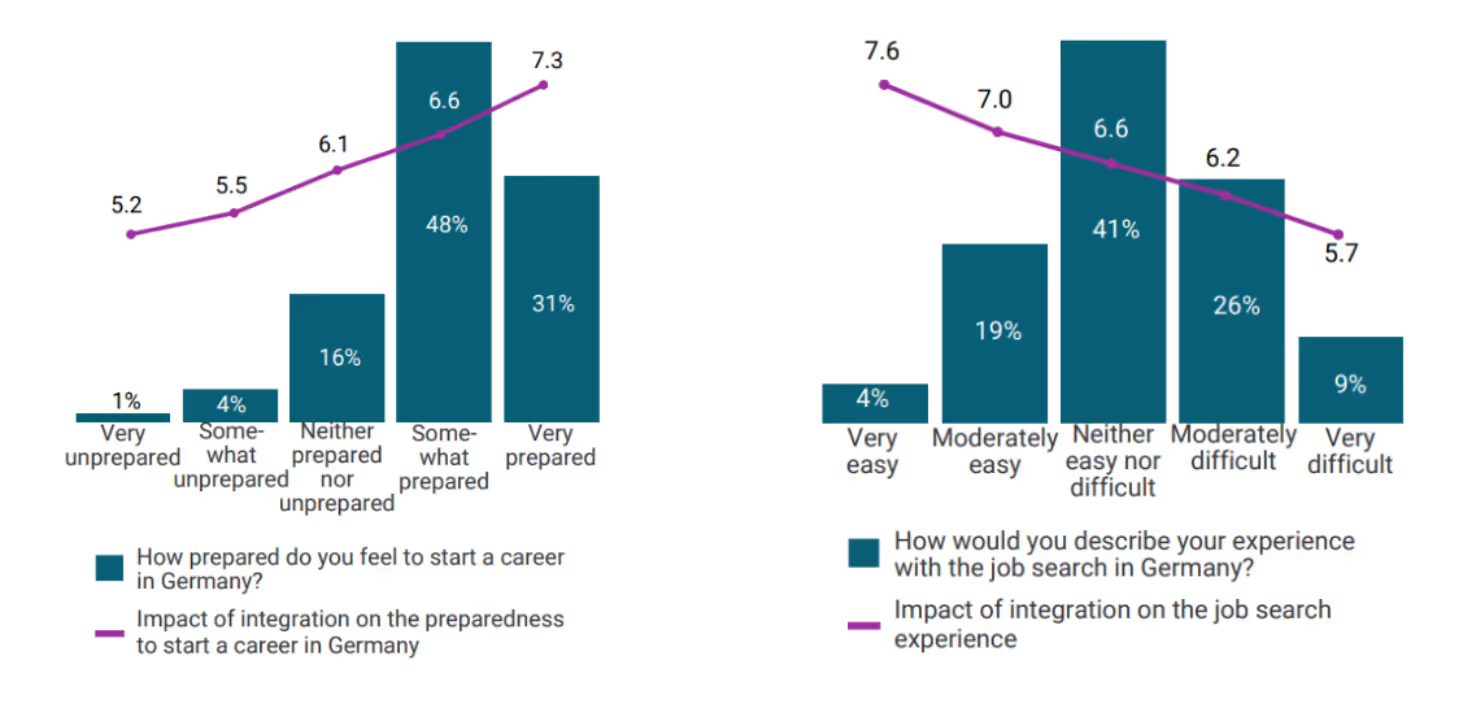
Conclusion
There are numerous integration possibilities available to international students and expats but unfortunately, many do not take full advantage of these opportunities. Therefore, it is crucial to highlight that integration is primarily a personal responsibility. On the other hand, a welcoming and inclusive society plays an equally fundamental role in empowering integration.
Tips for International Students and Expats
Regardless if you are a student, looking for a job, or working in Germany, here are some tips that can help with integration.
For International Students
Make an effort to learn German before arriving in Germany and continue to improve after arrival. Aim for B2 or higher to ease your job search.
Set aside time to join extracurricular activities provided by your university, which are typically free and offer an excellent opportunity to interact with both international and German students.
If you can, participate in your university’s orientation week to meet other international students and quickly get an overview of Germany, your city, and your university.
For Expats and Job Seekers
Take the time to acquaint yourself with the job application process, including CVs, cover letters, and interview etiquette in the German style.
Expand your understanding of living and working in Germany and German work culture by exploring resources such as Fintiba’s Working in Germany articles or the Make it in Germany website.
If you already studied in Germany, take the opportunity to join networking events, alumni meetups, and career fairs to expand your social and professional circles.
Important Takeaway for All
Remember that integration takes time. Do not be too hard on yourself when you get homesick.
Read more findings and recommendations from the survey here.
Get Fintiba Plus Today
Fintiba Plus is everything you need for your Opportunity Card or Job Seeker Visa in Germany — fast, simple, and reliable.
News & Stories from Fintiba
Discover our latest developments, company milestones, and insights from our team. From product updates to industry news and community stories.





